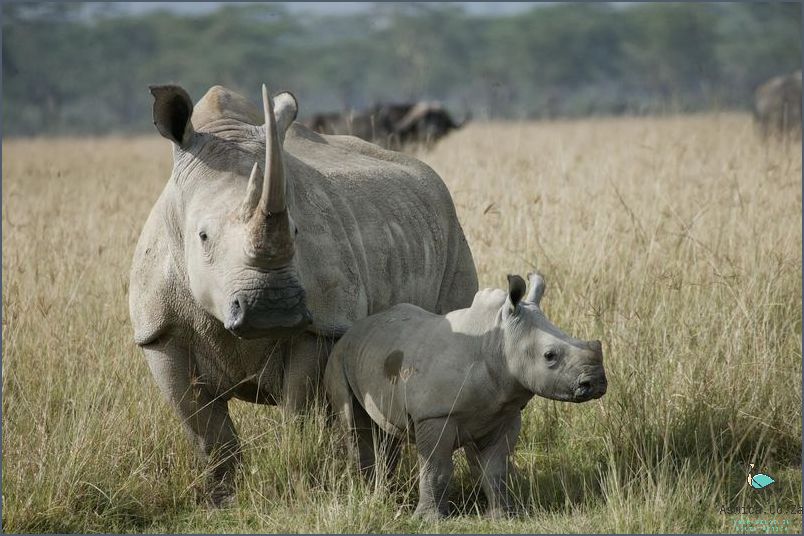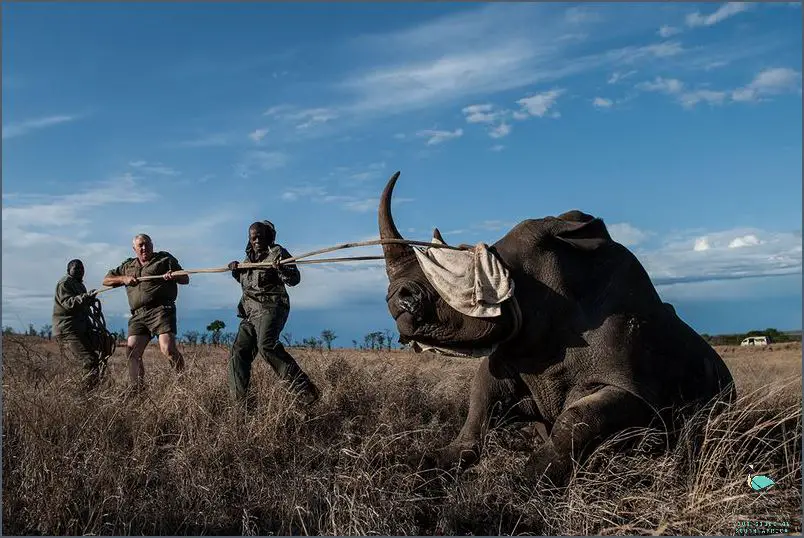
Poaching of rhinos has been on the rise in South Africa over the past few years, with around 1,000 rhinos killed in the country since 2008. The main reasons for this are that rhinos are being killed for their horns, which are in high demand in Asia as a symbol of wealth and prestige. There are now around 20,000 rhinos left in South Africa, and if the trend continues, they will be extinct within 15 years.
There are a number of ways that people can help to stop the poaching of rhinos. First, it is important to raise awareness of the problem, so that people are more likely to be sympathetic to the plight of the rhinos. Second, it is important to provide information about the dangers of poaching, so that people are aware of the consequences of harming these animals. Finally, it is important to provide security for rhinos, so that they are not targeted by poachers.
Contents
How To Stop Poaching Of Rhinos In South Africa
In order to stop poaching of rhinos in South Africa, a number of steps must be taken. One of the most important steps is to increase the level of enforcement of existing laws and regulations. This includes increasing the number of national parks and reserves with dedicated anti-poaching patrols and increasing penalties for those caught poaching. Another key step is to increase public education campaigns about the importance of protecting rhinos and the consequences of poaching. Additionally, it is important to work with local communities to provide alternative livelihoods that do not involve poaching. Finally, it is important to support local conservation efforts and provide financial incentives for rhino conservation. By taking these steps, the poaching of rhinos in South Africa can be significantly reduced.
Identify the main causes of the poaching crisis
The poaching crisis in South Africa is an ongoing battle against illegal hunting of rhinos, elephants, and other wildlife. In the past decade, the number of rhinos poached in South Africa has increased exponentially, with over 1,000 rhinos poached in 2020 alone. This has led to a dramatic decrease in the population of rhinos in the country, and the crisis is only getting worse.

The primary cause of the poaching crisis in South Africa is the illegal wildlife trade. This includes the sale of rhino horns, elephant tusks, and other animal parts for use in traditional medicines, jewelry, and other items. Poachers often target rhinos because of the high value of their horns, which can fetch a high price on the black market. The demand for these animal parts has created a lucrative trade for poachers, who are willing to risk their lives to make a profit.
The second main cause of poaching in South Africa is poverty. Many people in the country are living in extreme poverty, and poaching is often seen as a way to make money quickly. Poachers are willing to take the risk of being arrested or killed in order to make a quick profit. In addition, the lack of enforcement of anti-poaching laws in the country has made it easier for poachers to operate without fear of repercussions.
Finally, the lack of education and awareness of the poaching crisis in South Africa is another major cause. Many people are unaware of the extent of the problem and are not taking steps to prevent poaching. In addition, many people do not understand the long-term consequences of poaching, such as the destruction of ecosystems, loss of biodiversity, and the potential for species extinction.
To stop poaching of rhinos in South Africa, it is essential to focus on reducing the demand for rhino horns and other animal parts. This can be done by raising public awareness through education campaigns, as well as by increasing the enforcement of anti-poaching laws. In addition, poverty alleviation programs and economic development initiatives can help to reduce the incentive for people to poach in the first place. Finally, it is important to create stronger partnerships between local communities, conservationists, and governments to ensure that rhinos are protected and that poachers are brought to justice.
Discuss the need for increased protection for rhinos in the country
The poaching of rhinos in South Africa is a real and growing problem, one that must be addressed if we are to protect these majestic creatures from extinction. Rhinos are an important part of the wildlife in South Africa, providing a buffer between humans and the wild animals that share their habitat. Unfortunately, poachers have been taking advantage of their vulnerability, killing them for their horns and other body parts. This has led to a dramatic decrease in the rhino population, with some subspecies being on the brink of extinction.

The government of South Africa has taken some steps to protect rhinos, such as strengthening anti-poaching laws, increasing penalties for poachers, and creating protected areas for rhinos. However, these measures have not been enough to keep poachers from targeting these animals. To truly protect rhinos, we must take a holistic approach that looks at the root causes of poaching.
One way to do this is by increasing public awareness of the plight of rhinos, and of the need to protect them. Education campaigns can help to raise awareness of the consequences of poaching and to encourage people to report any suspicious activity. Additionally, funds could be allocated to increase the number of rangers patrolling areas where rhinos are present, and to provide them with the equipment and training necessary to catch and prosecute poachers.
A second way to protect rhinos is to improve their habitats and to create buffer zones between them and human settlements. This can be done by increasing the amount of land set aside for rhinos and by creating corridors that allow rhinos to move safely between different areas. In addition, efforts should be made to reduce human-wildlife conflict, as this can lead to rhinos being targeted by poachers.
Finally, we must address the demand for rhino horns and other parts. This can be done by raising awareness of the consequences of buying and selling these products, and by criminalizing the trade of rhino products. Additionally, governments should work with local communities to develop alternative sources of income and to reduce the reliance on wildlife products.
By taking a holistic approach, we can make a real difference in the fight to protect rhinos in South Africa. By raising awareness, strengthening law enforcement, improving habitats, and reducing demand, we can help to ensure the future of these majestic creatures.
Outline practical methods for stopping the poaching of rhinos

Poaching of rhinos has been one of the most pressing environmental issues in South Africa for decades. The illegal hunting of these majestic animals has had devastating effects on rhino populations, with a number of species facing extinction as a result. But while the poaching of rhinos is a major problem, there are a number of practical methods that can be taken to help stop it.
One of the most effective methods for combatting rhino poaching is the use of anti-poaching patrols. These patrols are made up of trained professionals who actively seek out poachers in protected areas and take steps to stop them. This can involve arresting poachers and confiscating their weapons, as well as providing intelligence about poaching activities to law enforcement agencies.
In addition to anti-poaching patrols, another important way to stop rhino poaching is to increase public awareness about the issue. This can involve education campaigns that explain the importance of protecting rhinos and the consequences of illegal hunting. It can also involve working with communities to create incentives for protecting rhino populations, such as providing jobs and economic opportunities for locals.
One of the most effective ways to deter poachers is to increase the penalties for poaching. This can involve increasing fines, as well as introducing harsher sentences such as imprisonment or even the death penalty in extreme cases. This can act as a strong deterrent to poachers, as they may be less likely to take the risk if they know that the consequences are severe.
Finally, it is also important to improve the enforcement of existing laws. This can involve strengthening enforcement efforts in protected areas, as well as providing better training and resources to law enforcement agencies. This can help ensure that poachers are quickly detected and stopped, which can help reduce the number of rhinos poached each year.
By implementing these practical methods, it is possible to stop the poaching of rhinos in South Africa and help protect these majestic animals from extinction. With a concerted effort from all parties involved, it is possible to create a future where rhinos can live without the threat of poachers.
Conclusion
The best way to stop the poaching of rhinos in South Africa is to increase the penalties for those who are caught poaching. This will help to discourage people from poaching in the first place. Additionally, increasing the number of patrols in areas where rhinos live will help to deter poachers from attempting to kill these animals.




